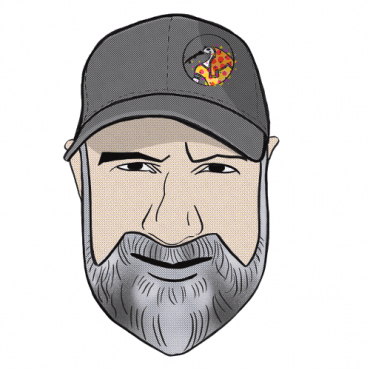What is the difference between a game writer and a writer of films or books?
- Edwin McRae
Liliana:
I have read about your work from your personal website, as well as from your book, Narrative Design for Indies. One small passage in particular stood out to me from Chapter Three, which read:
"We need more games like this. More games that know how to draw a player into a role, that recognize the fundamental advantage that games have over other mediums. That the player can be the character."
In my research article, I would like to explore what makes video games a special medium, as you said, especially in regard to their unique narrative structures that allow and encourage players to be an active part of the story. For that reason, I would like to request your expert insight and no more than a few minutes of your time to answer three questions for my study.
Edwin:
Thanks so much for reaching out, and for reading ND4Indies! Also, I can't tell you how happy I am to hear that university students are actually studying game narrative now. That bodes very well for games as a storytelling medium.
Liliana:
How does the work of a game writer differ from that of film and book writers?
Edwin:
The challenge of defining a "game writer" is the same challenge we have when defining a "video game". If we're talking about a linear, story-driven game like Deus Ex: Human Revolution or Tomb Raider then there's not very much difference at all. 3 Act structure, Hero's Journey and all those other writing techniques still apply. But if you're writing for a procedural RPG like Darkest Dungeon or a city builder like King of Dragon Pass or A Dark Room, then it couldn't be more different. Instead of writing a "story", you're writing a whole collection of tiny narrative bits that add up to a story only once the player encounters them in the game. And that player might encounter those narrative bits in any order, and miss whole swathes of them altogether, so any concept of plot goes out the window. That's when narrative design becomes more closely related to theme park design or interior design than to writing films or novels. You're creating an experience to enjoy, not a plot to follow.
Liliana:
How have video games changed the way stories are told and the way people engage them?
Edwin:
With film, TV and books, we're used to following a main character. It's a vicarious experience and we tag along on their journey. With games, the player is the main character. Video games have changed the way we relate to story by giving us agency. In a game, you're not a tourist. You're a local.
Liliana:
And lastly, what is the most exciting or rewarding part of your career as a narrative designer?
Edwin:
It's been really gratifying to hear players quoting lines that I've written and really engaging with characters I've created. When I say that, I'm thinking of Lady Dialla from Path of Exile. She was a real experiment, a complete eccentric who sways between childish innocence and stark wisdom. "Not-a-cockroach" is still one of the best nickname/compliments I've ever written. But outside of the "classic narrative stuff" of characters and dialogue, it's quest design that I get the biggest kick out of. Creating interesting and rewarding journeys for players, that's what I think is really special about narrative design. :-)
Liliana:
I truly appreciate your feedback which is extremely helpful and fascinating for my research. I have a great respect for your work as a creative narrative designer. I really enjoyed reading your book and learning from you.
Edwin:
Totally my pleasure and I wish you all the best with your research. Like I said, it's great to see people taking this subject seriously, as I think video games are becoming quite the new evolution in storytelling.
Liliana Marin is a senior Communications student at the University of Houston-Clear Lake in Houston, Texas, USA. This interview was conducted via email for a research article she is writing about video game storytelling and game literacy.

About Edwin McRae
Edwin is a narrative consultant and mentor for the games industry.
